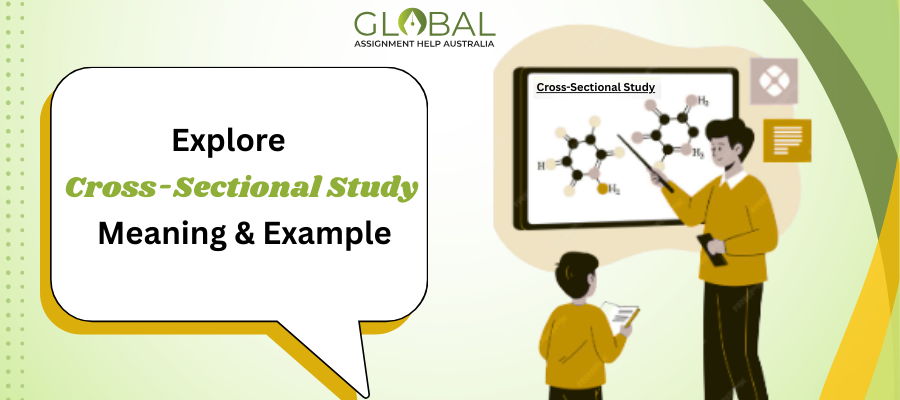 Offers
New
Order Now
Offers
New
Order Now
Monitoring your progress is crucial for improving the learning process. The techniques and process of reflection can be used to accomplish this.Students pursuing their master's and doctorate degrees are often assigned reflective writing by their professors. It is because this academic task helps them evaluate the things and skills they have learned throughout their course. So, are you a student who has been asked to draft a reflection essay? Well, Global Assignment Help Australia has got your back. We will explain to you how to complete this academic task with reflective writing examples. But, first, let us understand its definition and types.
Writing reflectively involves understanding and evaluating previous circumstances. In simple words we can say that, any writer performing a reflection will pick out an event or issue and evaluate his experience and reaction. This writing helps them understand the meaning, influence, and changes a situation brings. The best way to understand this academic task is to know the factors it highlights. Before we jump ahead to examples, let's have a look on the types of reflective writing.
This type of reflective writing suggests the writer choose a situation or task that is challenging for them. After this, they need to analyze the reasons why completing the particular task was difficult. It focuses in a specific crucial event or experience.
The report includes a simpler reflective writing structure. Here, the writer might concentration on a number of incidents that he believe are worthy to reflect on. The situation can be both challenging and simple.
A logbook or reflective notebook contains a number of ongoing activities that frequently occur during a course. The writer uses such reflection to analyze their progress, upcoming challenges, and skills regularly. To understand the journal and log types you can read reflective writing examples.
A reflective essay or assignment is usually an academic task that is given by the professor. The writer here needs to choose a particular event from their life or course. After this, they had to explain what happened to them and what they thought about it.
Now that we know what is reflective writing and its types, let's move ahead. In the next section of this blog, you will learn about various reflective models.These methods will help them understand the process and techniques used to complete this academic task.
After all this, now its time to explore their diverse models A reflection is completed using a model. These models include a step-by-step process that assists in analyzing and interpreting the experience of a particular situation. Not only this, but it will also help you develop an accurate reflective writing structure. So, let us have a quick overview of the three widely popular models of reflection.
The Brookfield model of reflection was developed in 1995 by Stephen Brookfield. According to this method, you should examine a situation from four angles. These include an autobiographical lens, colleague experiences, students' eyes, and a literature review.
The Gibbs reflective cycle was developed in 1988 by Graham Gibbs. It specifies that you have six stages to complete your evaluation. Thus, the stages includes a description, feelings, evaluation, analysis, conclusion, and action plan.
The Driscoll reflective model originated in 1994. It is regarded as one of the crucial techniques and was created by John Driscoll. It incorporates a step analysis, namely, what, so what, and now what.
The above models will help you conduct a successful reflection on an event or situation. But, still, it is essential to know how to perform this analysis and draft a flawless and informative write-up. So, let us understand this in a step-by-step format using reflective writing examples.
In this section of the blog, we will understand how to craft a reflection paper. Our experts will provide a simple and direct explanation along with reflective writing examples. So, let us move ahead and learn the various steps involved in completing the document.
You must select an interesting topic as it is regarded as the first step of writing a reflection paper. The theme of the paper should be as per the instructions and requirements of the professor. It should reflect great insights and have extensive evaluation capabilities. Our experts have offered a few reflective writing examples.So, you can refer to these prompts to practice your drafting skills.
a) Perform a reflection on the first semester of your course and share your experience.
b) Write a reflective paper on a personal, life-changing event.
c) Share your experience of adopting or taking care of pets.
d) Compare your high school and college life and describe your experience and progress.
So, these are some reflective writing instances that you an craft your paper on. Let's suppose we are studying the first topic, which is analyzing and describing the first semester. Keeping this theme in mind, we will understand how to draft the other sections of the document.
Avail Reflective Essay HelpAfter topic selection, students need to format the document as per the reflective writing structure rules given by the professor. Moving further, they must write the first section of their paper. The introduction should define the topic for readers and provide background information. After this, it should explain the relevancy of the theme and highlight the credibility of the content. Let us look at the questions contained in the introduction section.
a) What Is the Purpose of Writing?
b) What Is the Event or Situation for the Reflection?
c) How Is the Topic Relevant for You and Your Readers?
d) How Can You Justify the Credibility of Your Writing?
You have now understood the questions that have to be included in the introduction. Let us move ahead discover how to start this section with samples of reflective writing.

This is how you start the introduction. You need to provide ample background information to the readers and a quick abstract of the upcoming paper. If you still face any issues, you can always seek assignment help Australia from our experts. Until then, let us move on to the next section.
You can start the main body paragraphs, after the introduction section. These sections of the reflection essay justify the thesis statement. It provides valid evidence and a clear description of the topic. This is the section where you unravel the details for the audience. Have a look at the questions you need to answer in the main body.
a) What Was Your Experience in the Situation?
b) What Were Your, Thoughts Reaction and Emotions Towards the Event?
c) What Have You Learned and What Did You Like and Dislike?
d) What Progress and Changes You Need to Make in the Future?
Now, after referring to our question, let us jump back to our reflective writing examples topic and learn how to craft the body.

The body should explain your entire experience, perspective, and emotions. Do not leave any essential details behind. To learn more, you can rad multiple instances of reflective writing if you are still confused.
The conclusion is considered the final section of the reflection essay. It should include a quick summary of the entire document. You should start with good sentence starters and engage your readers. Let us look at the points to include in the conclusion.
a) How Did You Feel About the Circumstance?
b) Provide a Quick Summary
c) Highlight the Key Thoughts
d) Describe the Event's Impact
Now, let us look at the reflective writing examples of the conclusion to understand how to craft this section in a better way.

In conclusion, try not to introduce new ideas, and be as specific as you can. Moreover, if you face any more challenges in drafting, you can always reach out to our experts. They will help you in every step. Do not believe us? Check out the next section to learn more details about our expert assistance.
Global Assignment Help Australia is a leading and one of the most popular academic platforms. If you are a student and facing any issue writing reflective essays then this blog is here for your help. Our team of experts can assist you with all your queries. . These professionals will help you complete tasks like researching, editing, and drafting. So, yes, they can help you with assignments and essay writing in any subject or topic. All you need to do is list out the requirements in detail and wait for an amazing write-up to be delivered. So, if you need help with your reflection paper or have any doubts about it, reach out to our experts. They will resolve all queries in simple language. Till then, refer to this blog and learn how to write a reflection paper by understanding reflective writing examples.
You may also like to read:
10+ Popular Formative Assessment Examples
HLTWHS002 Assessment Answers: Apply Secure Work Operations For a Quick Client Care
How to Write a Reflection Paper? 4 Important Steps with Apt Structure

Grab this exclusive offer and start your journey to savings today! Act quickly, as this special offer won't be around for long!

This blog explains what is a hyperbole, provides engaging examples, & explores how to use hyperbole.

Explore 150+ funny debate topics to spark laughter, creativity, and lively discussions in 2025

Cross-Sectional Study basics explained with steps, examples, and comparisons.
Limited Time Offer
Exclusive Library Membership + FREE Wallet Balance
1 Month Access !
5000 Student Samples
+10,000 Answers by Experts
Get $300 Now
Update your Number
